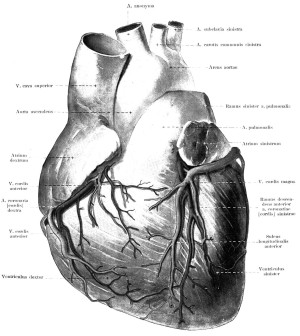- The Best Time of Day to Drink Bone Broth to Maximize Health Benefits
- 8 Ways to Increase Dopamine Naturally
- 7 Best Breads for Maintaining Stable Blood Sugar
- Gelatin vs. Collagen: Which is Best for Skin, Nails, and Joints?
- The Long-Term Effects of Daily Turmeric Supplements on Liver Health
- Could Your Grocery Store Meat Be Causing Recurring UTIs?
- Are You Making This Expensive Thermostat Error This Winter?
- Recognizing the Signs of Hypothyroidism
- 10 Strategies to Overcome Insomnia
- Could Artificial Sweeteners Be Aging the Brain Faster?
New Drug Lowers Cholesterol Beyond What Statins Can Do, Study Finds


Two studies find that an experimental cholesterol-lowering drug is effective when combined with statins and beats another add-on drug when it comes to helping hard-to-treat patients.
The drug, evolocumab, is an injectable antibody that works differently than statins by increasing the ability of the liver to clear LDL (“bad”) cholesterol from the blood. The value of this drug is that it lowers cholesterol in patients who cannot tolerate statins or for whom statins don’t lower cholesterol enough.
“These two new studies provide further evidence of the efficacy of evolocumab for lowering LDL cholesterol in statin-treated and in statin-intolerant patients. The results are impressive,” said Dr. Gregg Fonarow, a professor of medicine at the University of California, Los Angeles, who had no part in either study.
Both studies were funded by Amgen, the maker of evolocumab, and the results were scheduled to be presented Sunday at the American College of Cardiology’s annual meeting, in Washington, D.C.
“Evolocumab may provide an effective option for patients needing additional LDL-cholesterol lowering,” said Dr. Jennifer Robinson, director of the Prevention Intervention Center at the University of Iowa College of Public Health, and lead author of the first study.
In that trial, evolocumab was added to statins such as atorvastatin (Lipitor), rosuvastatin (Crestor) and simvastatin (Zocor). The trial, which involved almost 1,900 patients, also compared the effectiveness of evolucumab when pitted against ezetimibe (Zetia), another drug that can be added to statin therapy to further reduce cholesterol.
“Evolocumab further reduces LDL cholesterol by about 65 to 75 percent when added to a statin. Evolocumab reduces LDL cholesterol more than ezetimibe — about a 15 to 20 percent additional LDL-cholesterol reduction, when added to statin,” Robinson said.
“A [different] trial is under way to determine if the addition of evolocumab will further reduce heart attack and stroke in statin-treated patients with cardiovascular disease,” she added.
For the second trial, a research team led by Dr. Erik S.G. Stroes, chair of the department of vascular medicine at the Academic Medical Center in Amsterdam, found that evolocumab was more effective than Zetia in lowering cholesterol beyond what could be achieved by statins alone.
The researchers treated 307 patients with evolocumab or the widely used Zetia. LDL cholesterol was reduced by up to 56 percent in patients using evolocumab. That was almost a 39 percent larger reduction than Zetia achieved, he said.
“We finally seem to have a good alternative treatment for patients who experience severe side effects to statin therapy. The combination of a robust cholesterol-lowering effect with minimal side effects make evolocumab a promising treatment for those patients not tolerating statin therapy,” Stroes said.
Dr. David Friedman, chief of heart failure services at Franklin Hospital in Valley Stream, N.Y., said reaching LDL cholesterol-lowering goals in high-risk heart patients poses an ongoing challenge.
Evolocumab holds promise, “however, we need to await more outcome-based measures that show an actual reduction in heart attacks and strokes to show the true benefit of evolocumab in the long term,” Friedman said.
Another expert, Dr. Tara Narula, associate director of the cardiac care unit at Lenox Hill Hospital in New York City, agreed.
“We need more research before we can definitively say that this agent is safe and effective. We don’t know how simply lowering LDL cholesterol translates into overall cardiovascular outcomes,” she said.
Narula noted that studies of Zetia failed to show a reduction of heart attacks and strokes, even though the drug effectively lowered cholesterol.
“We need to await the results of [a different, ongoing trial] to see if lowering LDL cholesterol lower than standard levels really does translate into reduced cardiovascular events over time. That’s the kind of research we need before we change our clinical practice,” she said.
Studies presented at medical meetings are considered preliminary until published in a peer-reviewed journal.
More information
Visit the American Heart Association for more on cholesterol.
Source: HealthDay
Copyright © 2026 HealthDay. All rights reserved.










